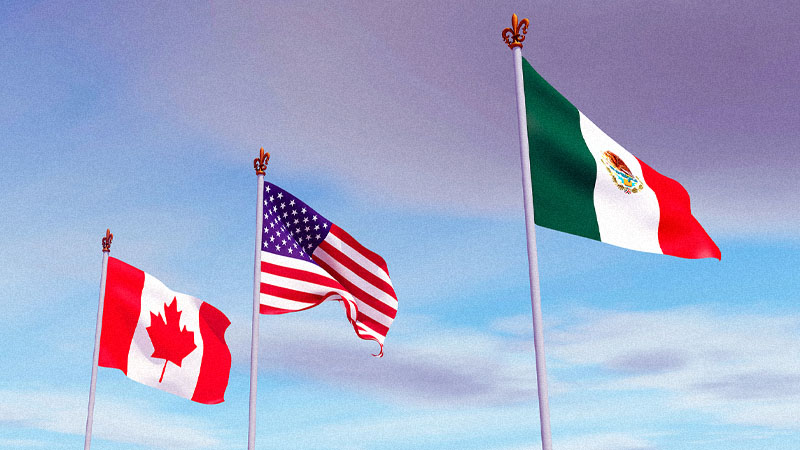Exclusive content

Mexico’s focus has shifted significantly towards the upcoming review of the United States-Mexico-Canada Agreement (USMCA) scheduled for 2026. This pivot has relegated other potential trade agreements, such as those with Ecuador, South Korea, and the European Union, to the back burner. The reason for this shift is clear: approximately 82% of Mexico’s exports are directed towards the United States and Canada, making the USMCA an essential pillar of the nation’s trade policy.
Impact on the Shrimp Industry
One specific area of contention in Mexico’s trade negotiations is the import restrictions on shrimp from Ecuador. Mexico’s insistence on maintaining these restrictions has caused a significant strain on bilateral relations. The shrimp industry, vital to both nations, finds itself at the heart of these trade discussions. For Mexico, controlling shrimp imports is crucial to protecting its domestic shrimp market, which is a significant source of income for many coastal communities.
While the focus remains on the USMCA, several other trade agreements are pending or in a state of limbo:
- FTA with Ecuador: Mexico wants to impose restrictions on imports of bananas and shrimp. This has led to a stalemate in negotiations, with neither side willing to compromise, further complicating bilateral relations.
- FTA with South Korea: Initially, there was momentum towards an agreement, but Mexico has paused negotiations to reassess its objectives and address concerns from various business sectors.
- Modernization of the FTA with the European Union: Despite starting strong, this agreement has not been signed and lacks the necessary political push to move forward.
- Economic Complementation Agreements with Argentina and Brazil: These agreements face hurdles due to political changes in the respective countries and longstanding trade issues, particularly outside the automotive sector.
Government Transition and Its Implications
The transition to a new presidential administration in Mexico in October 2024, coupled with the upcoming end of President Joe Biden’s term in January 2025, adds another layer of complexity to these negotiations. The outgoing administration of President Andrés Manuel López Obrador will leave several trade negotiations unfinished, passing these challenges to the incoming government.